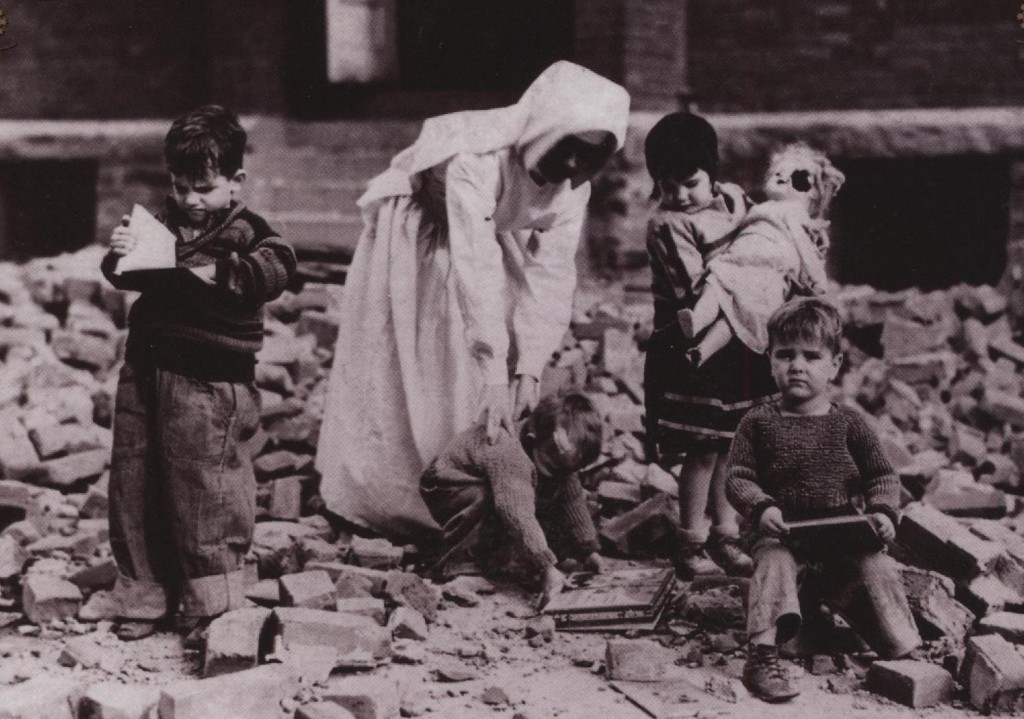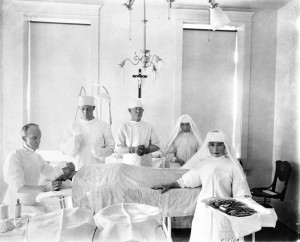
Parochial institutions in nineteenth- and early-twentieth-century Montana, which were almost exclusively under the supervision of women, were the forerunners of our modern social services. Catholic nuns, Methodist deaconesses, and nondenominational Christian women offered comfort, sanctuary, and stability to the lost, the desperate, and the destitute. Their contributions were far-reaching and some of their pioneering services evolved and remain viable today.
Sisters of Charity of Leavenworth (Kansas) came to Helena in 1869 at the invitation of Jesuit priests who saw a dire need for feminine influence in the rough-and-tumble gold camp. The sisters’ mission was threefold—to teach youth, care for orphans, and minister to the sick—and it fit in with the real needs of the frontier community. St. Vincent’s Academy, the first boarding school for non-Indian girls, opened in 1870 and educated girls until 1935. Continue reading Early Social Service Was Women’s Work
